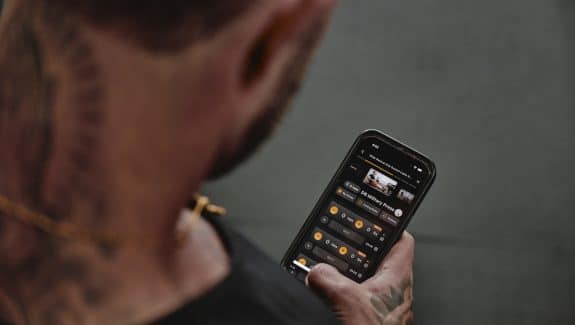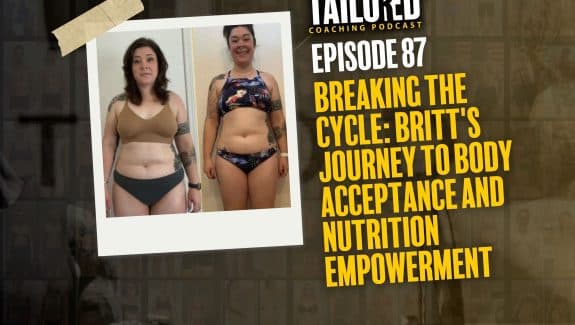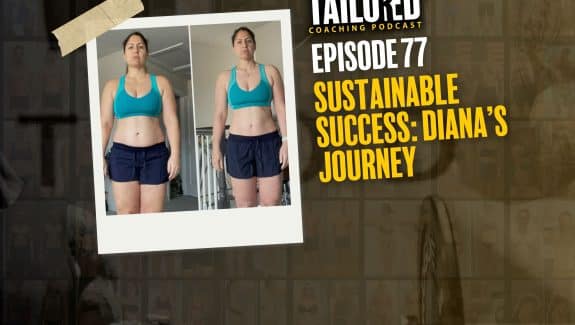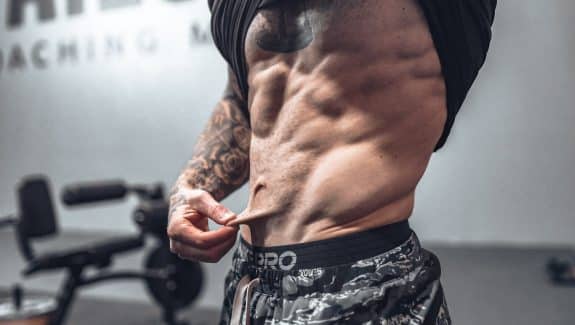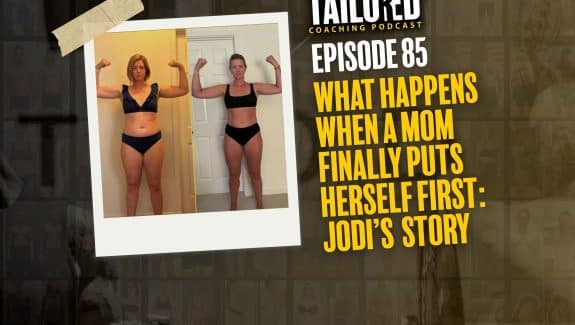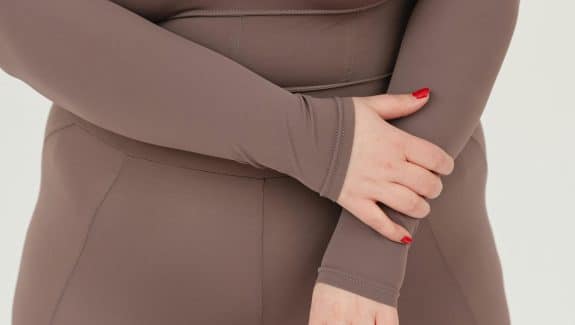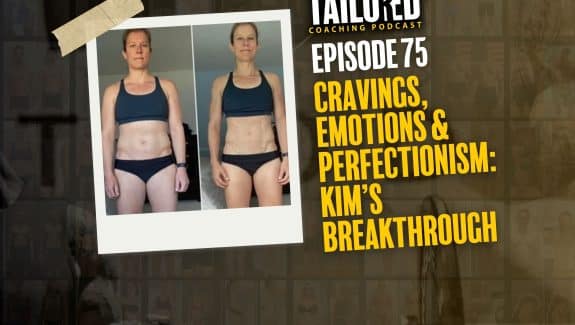When fat loss is the goal, cravings can be your worst nightmare… and even when your goal isn’t fat loss, food cravings should not be something you’re constantly battling. These can literally be that: a battle.
Typically, a craving is for some kind of food that is highly processed and highly palatable. It’s important to note that packaged, processed food is engineered to be addicting… food companies pay people to make these cravings more and more intense. (Crazy, I know)
Cravings, especially the super intense ones, are often a result of hormones not functioning properly. Hormones like cortisol, If you’re training really hard, working all day, have a stressful home life AND decide to grab some fast food or “something quick”, you’re setting up the perfect storm for cravings and more issues with losing fat and enhancing your performance… which is what most people set out for when they start their fitness journey.
As a matter of fact, a study done by researchers at UC Berkley found that junk foods were much more desirable because high level brain regions were blunted from just one night of poor sleep.
Many people who I’ve worked with who have come to me with crazy cravings have also been what I like to call “chronically dieting” (which really just means chronically stressed) for extended periods of time without any type of break. When I say “dieting” I mean being in a calorie deficit. Eating less calories than your body needs to maintain its current weight.
Think you might be under-eating? This video may just help you understand.
If That’s You ↑ Click Here For Help.
Here’s the thing no one tells you about going on a diet (or doing some crazy fad you read about on Facebook): it is a stress to your body. (Read about it here.)
You heard that right. When you cut calories too much, for too long, your hormones take a hit.
What’s this mean for cravings? They go through the roof. Especially when you’re on a restrictive plan that says you “can’t” have even the slightest bit of your favorite flavor of Ben and Jerry’s.
This messes with you emotionally as well and leads to having a poor relationship with food – when the diet ends, or will power finally caves, you binge on the Ben and Jerry’s… not good for your health or your fitness goals.
5 Simple Strategies to Eliminate Cravings,
FOR GOOD!

1. Stay Hydrated – Drink Water!
This is literally something I talk with new clients about every single time they start coaching with me. Not one person that I have ever worked with starting out is drinking enough water. Shoot, most people aren’t even drinking water at all. Around 60% of your body weight is water. Your body literally uses water for everything. Your cells, organs and tissues all need water to function properly. It also aids in food digestion, nutrient transportation, waste removal, joint protection, body temperature regulation and so much more.
As you can see, it’s important to drink water. When it comes to food cravings, I find very often that people are actually just thirsty and probably slightly dehydrated. It’s pretty simple really. Next time you get a craving for sugar or processed food, fill up a big 12 oz. glass of water and drink it down. I am confident that when you finish the water, your craving will subside. This is also very powerful for distinguishing cravings from a true hunger signal.
2. Emphasize Sleep
Sleep deprivation causes your body’s hormonal system to be all out of whack. Managing stress in your daily life and having a normal cortisol curve is crucial to be able to sleep.
When cortisol is all over the place (aka chronically stressed) this also impacts your sleep… which will impact your hunger hormones (leptin and ghrelin). Leptins job is to tell your brain that you’re satisfied. When you get quality sleep, leptin levels increase. This lets your body know that you have the energy needed and don’t need to trigger a hunger response. When you don’t get quality sleep, you don’t get the increase in leptin. When you don’t get the increase in leptin, your brain signals hunger (cravings) when in reality, you don’t need the food. You need better quality sleep to regulate your hormones more effectively.
The other hunger hormone, ghrelin, is also impacted by a lack of sleep. Ghrelin is the opposite of leptin and tells your brain when it’s hungry. When you get quality sleep, ghrelin decreases. When you don’t get the sleep your body needs, you end up with too much ghrelin in your system… making you feel like you need food when in reality what you need is SLEEP! Some keys for better sleep:
- Dark cool room
- Going to bed at around the same time daily
- Waking up at around the same time daily
- Having a routine
- Wearing blue light blockers (especially if you’re looking at screens at night)
- Managing stress (meditation, relaxation, eating enough quality food)
3. Eating Real Food – Protein and Veggies
We all know protein is the key macronutrient for building muscle. We also all know how important it is to consume micronutrient dense foods (vegetables & fruit) in our diet. What we also have to consider is how these foods can fight cravings.
Think about it this way: if you sit down and eat a sirloin steak, sweet potato and spinach – could you eat two plates worth? Like two 14 oz. steaks, two potatoes and 4 cups of sautéed spinach? I would argue most of you would say “hell no”.
On the contrary, if you sit down with a bag of potato chips, or a box of sugary breakfast cereal – you could get through the entire bag/box without a problem. And it’s simple: foods that are high in protein, micronutrients and fiber are more satiating. They keep you fuller, longer. Plus, they make you feel good and won’t put you on the “blood sugar roller coaster” that highly processed foods often will. If you decide to get on this roller coaster, you’re asking for consistent, strong cravings for poor quality foods.
Eating enough protein and micronutrients will also lead to more progress with your training… more strength gains, more muscle and more fat loss.
Also, along the lines of what you’re eating, if you’re experiencing cravings, jot it down in a notebook or log it in the notes app on your phone. Think about the time of day it happens, what you’re craving, the emotional state you’re in (happy, sad, anxious etc.) and the environment you are currently in. Taking note of all of these things over the course of a month or two can bring more awareness to why you’re getting the cravings, and how you can better combat them in the future.
4. Eliminate Distractions
Being more mindful when you eat is one of the easiest ways to distinguish cravings versus true hunger. Think about it: when you’re distracted with your favorite show, it’s easy to have a bag of chips in front of you and get carried away. Because you’re not focused on chewing your food and being mindful of your satiety signals. Add to that that the potato chips are not super filling and they taste great… so it’s easy to just mindlessly eat them. Instead of eating in a distracted environment in front of the TV or your phone, try sitting down in a quiet place and just focus on the meal you’re eating.
Another way to eliminate distractions is making time for relaxation and doing things you enjoy. BEING PRESENT. Too many times people get caught in their lives constantly stressing about everything in their lives… their work, their relationships, their kids, their training, their nutrition. Schedule time to do things you enjoy.
- Take a weekend and get away
- Go outside without your phone and just walk
- Have a meditation routine daily
- Read more books about things you want to learn more about or that will help with personal growth
Chilling out means less stress. And less stress means less craving for processed sugar and fat. Cravings suck, but with these tips and with some awareness, you can fight them and get to the point where they are eliminated for good.
5. Fasting
Fasting is one of those things (especially intermittent fasting) that is being blown up and used as a “magic” weight loss strategy. In reality, if you’re eating in a calorie deficit week after week, you’ll lose body fat whether you’re fasting or not. Where fasting comes into the picture in regard to fighting cravings is learning what true hunger really is (Read more about it in this recent article, HERE).
Most people in our society haven’t gone much longer than 8-10 hours without food. Pushing that out to 16 hours – and even doing the occasional 24 or 48 hour fast can really be powerful for teaching you that most of the time when you think you’re hungry… you’re not. You just have a craving or you’re thirsty.
Fasting shouldn’t be overused however… and if you know you have a tough training session tomorrow, you shouldn’t fast the day before. Food is essential for performance. But when we’re trying to eliminate cravings, using fasting as a tool to educate you about the natural signals of your body can be a game changer. Fasting also has some awesome health benefits including (especially prolonged fasting – 48-120 hours):
- Improved immune health
- Improved metabolic health
- Improved insulin sensitivity
- Improved cognitive function
If you’re going to give fasting a go, I’d recommend starting slow. Start with just a 12-16 hour fast and pay close attention to how you’re feeling throughout. Ultimately, you’ll find that the deeper you get into your fast, the cravings will subside, and you’ll come out on the other side with a better understanding of cravings versus true hunger.
These are some super simple ways you can start fighting cravings and get to a place where they are eliminated for good. You will find by implementing these simple strategies that you will not only have less cravings, but you’ll be a healthier version of yourself overall. Give these strategies a go and I promise, with some time and consistency, you will eventually put an end to your cravings once and for all!
References:
https://www.ncbi.nlm.nih.gov/pmc/articles/PMC2895000/
https://news.berkeley.edu/2013/08/06/poor-sleep-junk-food/










































































































































































































